Food Additive Testing

Food additives are substances which are technologically required for the manufacturing of food and also added to food to preserve flavor or enhance its taste and appearance. They include antioxidants, preservatives, coloring agents, flavoring agents, anti-infective agents etc. Most food additives have little or no nutritional value.
As per FSSAI regulations, all food additives are to be mentioned on the labels along with the quantities of such food items and the food samples must be verified by an accredited laboratory for compliance to the prescribed regulatory limits for each additive.
Food additives are used for the following purposes:Preservatives: to avoid fungi, bacteria & germs, to maintain flavor in foods and further to maintain fats and oils in good shape, to maintain hygiene while exposed to air. Sodium Benzoate, Sodium nitrite, Butylated hydroxytoluene, Ammonium Sulfate are some of the preservatives in the food.
Artificial sweetener like Saccharin, Acesulfame, Aspartame, Sucralose.
Acids like – vinegar, citric acid, tartaric acid, malic acid, fumaric acid, and lactic acid, if taken in larger quantities may cause cancer.
Acidity regulators , Anticaking agents like Sodium aluminosilicate, Antifoaming agents, Bulking agents like starch, Antioxidants – Vitamin C.
Food coloring, Color retention agents, Emulsifiers, Flavors, Flavor enhancers, Flour treatment agents, Glazing agents, Humectants, Tracer gas, Stabilizers, Thickeners.
There are various additives which have been banned globally like Agene, cinnamyl anthranilate, cobalt salts, diethyl pyrocarbonate etc, the presence of which in food items need to be analyzed as they are very dangerous and had caused life threatening diseases.
Different food additives have varied functions and are used by food business operators during different processes and they have to be careful while using some of the harmful food additives as Aspartame, Sodium Nitrate, Caffeine, Food Dyes etc.
If the permitted limits of the additives in the food products exceeds the values then it could lead to harmful effects on consumers.
Artificial Sweeteners like As per tame is a toxic sweetener and could lead to adverse impacts on human body.
Tans Fats in foods could lead to heart diseases.
Food Colouring could lead to behavioral problems in children.
For above reasons, the regulatory bodies have defined limits for all food additives and all food products must be periodically tested from the accredited laboratories for compliance.
food testing laboratory is equipped with all the required equipment and is operated by a team which is experienced in the analysis of food additives, using techniques like HPLC, HPTLC, GCMC, LCMSMS and chemical analysis.
Concentrated Fruit Vegetable Juice /Pulp / Puree With Preservatives For Industrial Use Only
Concentrated Fruit Vegetable Juice /Pulp / Puree With Preservatives For Industrial Use Only means an unfermented product, which is capable of fermentation, obtained from the juice or pulp or puree of fruit(s) / vegetable (s), from which the water has been removed to the extent that the product has a soluble solids content of not less than double the content of the original juice, pulp, puree prescribed under Regulation 2.3.6 and Regulation 2.3.7. It may be pulpy, turbid or clear.
The product may contain food additives permitted in these regulations including Appendix A. The product shall conform to the microbiological requirements given in Appendix B.
The container shall be well filled with the product and shall occupy not less than 90.0 percent of the water capacity of the container, when packed in the rigid containers. The water capacity of the container is the volume of distilled water at 20ºC which the sealed container is capable of holding when completely filled.
 Admin Register
Admin Register

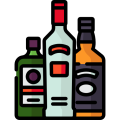 Alcohol
Alcohol  Baby Care
Baby Care  Bakery, Cakes & Dairy
Bakery, Cakes & Dairy  Beauty-&-Hygiene
Beauty-&-Hygiene 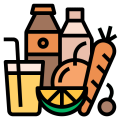 Beverages
Beverages  Cleaning & Household
Cleaning & Household  Construction Materials
Construction Materials  Foodgrains, Oil & Masala
Foodgrains, Oil & Masala 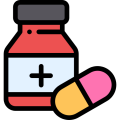 Medicine
Medicine  Medicine Related Cosmetics
Medicine Related Cosmetics  Non-Veg
Non-Veg 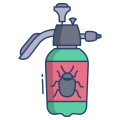 Pesticides
Pesticides 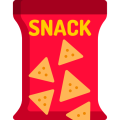 Snacks & Branded Foods
Snacks & Branded Foods 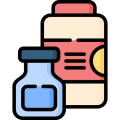 Supplement
Supplement  Veterinary
Veterinary 